-
Natural wine
I wrote this article about natural because many people confuse between organic wine , biodynamic and natural wine. I’m not the best sommelier of world, but i can recognize wine with added yeast and too much chemical. I wrote about that since 2002 …..
Good reading
Jean-Charles Botte natural wine advocate Sommelier of Xich lô French Version
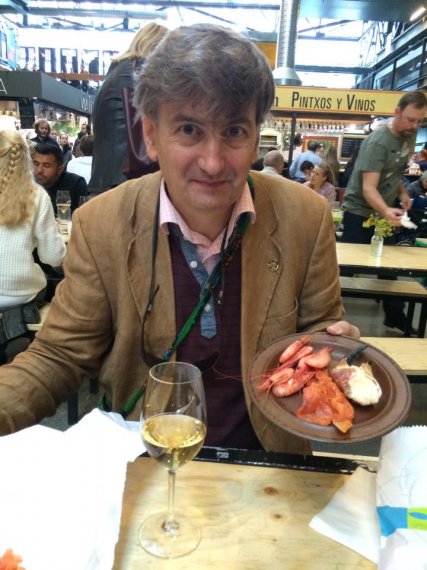
Different style :
For me you have two kinds of wine in the world
Buccal wine : wine from conventional farming with added yeast. You don't have after taste - aromas return
Spiritual wine : often certified organic and always made with natural yeasts. The after tasting is very long : 5 minutes
In spiritual wine you have 2 categories :
Classic spiritual : the client can understand this wines. You can find natural wine with low sulfur
Very spiritual : only natural wine without sulfur. Sometimes, the client without education about this kind of wine don’t understand this wine because the memory of the client haven’t habit. Our memory of taste order the tasting.
« Natural wine is a wine from organic farming and natural wine making without the intervention of the winegrower - no added yeast, no added sugar etc ... ..and with little or no sulfites : 30 milligrams of sulfites for red wine and 40 milligrams of sulfur for white wine. » from french association
They are not appellation of natural wine.
Organic wine appellation only existed for the 2012 vintage in Europe. But the rule of organic winemaking is low: the winemaker can add 100 milligrams of sulfur per liter of wine, it can add chaptalisation, acidity and other inputs
The great instance of wine don’t recognize « natural wine »
A winegrower wanting a natural wine should develop a clean farming as organic or biodynamic farming. Biodynamic agriculture is higher organic farming : playing with the stars and the moon. Biodynamic agriculture is the nature for the nature. Rudolf Steiner was a philosopher, occultist and social thinker. He is the founder of anthroposophy and brought up to date: biodynamic farming. https://www.biodynamics.com/demeter-past-and-present
Please note a biodynamic winegrower is not automatically a natural winemaker. But a true natural winemaker is a winegrower from organic or biodynamic farming. You can check in www.lesvigneronsnaturels.org
The « true » natural wine is very different as a conventional wine. You can be surprised
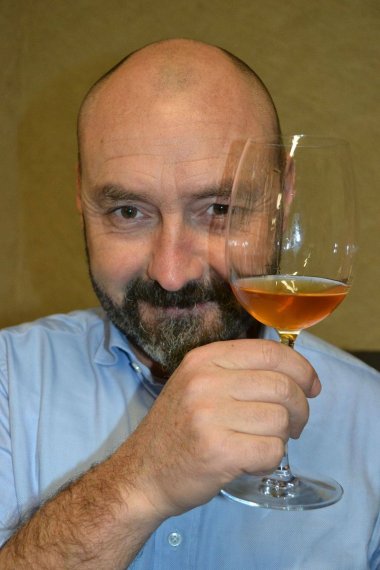
Guilo Armani, Denavelo winemaker of la stoppa Photo by Hans Dusselier DeSolari - Facebook-
Tasting a natural wine:
Color
The wine may be cloudy because it is not unfiltered
The color is more evolved, you can find edge of orange, on bord of red wines. Or for white color after opening day the white can become brown.
The nose
The nose gives hints of stables and hints of vinegar acidity. A good natural wine with no added sulfur : the two flavors mentioned are present but not dominant, the result is pure and very complex. The first nose - without moving the wine in glass- and the second nose - after moving the wine in the glass are very different, and change all time.
Aromas of natural wine
Barnyard notes: natural yeasts protect natural wines and give this aromas . You needs to decant the wine. It is a sign of wines vinified naturally without added sulphur. however, if the aromas persist, they are Brettanomyces (brett) yeasts. they are bad yeasts.
Minerality notes: taste of stone are present in the after taste of red and white wines. I have only sensed this notes in spiritual wines (organic farming and spontaneous fermentation.)
Pee mouse : just wine without sulfur…When it is too much it is fault.
Vinegar acidity : you smell vinegar in nose and retro-olfaction for wine without sulfur. Claude Courtois said always : « vinegar acidity is always necessary for the balance of wine, you have good and bad vinegar acidity » Too much isn’t good…
Marc of wine : a sign of clean wines vinified with natural yeasts from organic farming .
Eau-de-vie: present in clean, pure and white wines. You can smell pear or mirabelle in natural white wines.
Palate: : The phenolic maturity gives a smooth - unctuous attack of palate. The middle of mouth can have gas, i recommend to decant this kind of wine. The tannins in red are fine with good phenolic maturity.The after taste is forgotten by tasting courses of great instance’s wine as WSET . The after taste - the return of aromas after tasting- is very complex, long and mineral. That is why they are called « spiritual wines ».
Finally, the middle of wine is like water. Mineral after taste gives fresh final. Wines are very digestible and easier to drink even if the wine is powerful.
The nose of the empty glass: clean, pure with fruit. A wine with too much chemical offers an aroma of burnt matches for empty glass.
Carbonic maceration and sulfur-free
"The tank previously is saturated with carbon dioxide, the healthy and whole grapes are put into tanks ... The sulfur has no sense since the harvest is under the protection of gas carbon .... Add sulphur involves stirring juice and grapes incompatible with the principle of macerating grapes intact. "From the book of natural wine François Morel. After several blind tastings, I've realized that I have a preference for Beaujolais vinified in Burgundy style and not carbonic maceration. I find more mineral after taste and complexity in the first. Carbonic maceration produces Glug glug wines for wine bar. » term from François Morel . But mostly I do not criticize them and if I had my vines, my first bottle would from carbonic maceration and easy to drink and sell quickly.

The service of a wine with no added sulfur: :
In The restaurant « La Méditérannée » place de l’odéon 75006 - I worked 5 years 2006 until 2011, we proposed the estate Rapatel white by the glass. From late June to early September, it sparkled: I do not know why. It smelled like beer. It was enough not to sell and wait. After several months, he came back normal, and it was served with bouillabaisse.
The most important is already listening to the customer, whether it is open to this kind of wine. That's why I always give a tasting of the wine. This kind of wine is not like soda, it is like us, it is alive. When it opened, it can make you look when you get up in the morning. It is asleep and is not in phase. So the golden rule you should always decant this kind of wine. People educated by the great wine schools speak about faults of natural wine: the nose of natural wine are a little more evolved ... This is normal wine has no additives. You can have Oxydadif light side and you look nice like me with my few gray hairs, they give me beauty. For wine is the same. And I will not cover my gray hair with chemicals ...
A great advantage for the "real" natural wine: they can keep open one week until two weeks. It is great for the service by the glass .
Conservation of natural wine
Under 15 °
A true wine without sulfur can stay opened for a week
A real natural wine can be aged without problem.
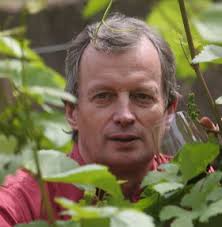
Critics about natural wine :
« I asked David Gleave MW, Liberty’s managing director, why he had felt compelled to write this. According to him, ‘It is important to me that a wine express the character of the grape and the place in which it is grown. Almost all of the natural wines that I have tasted have this expression marred by one fault or another.’ » From article of Isabelle Legeron in decanter 2011
Robert Parker 19th February, 2014 by Rupert Millar « Pouring further scorn on the “undefined scam called ‘natural’ or ‘authentic’ wine”, he said it would be exposed as a fraud when one considered that “most serious wines have no additives”.
Why the term "natural" wine is absurd ? by David Cobbold journalist master of wine 5 fev 2011
« The general line of argument used by most proponents of the "natural" wine movement is that they add nothing and substract nothing to and from what nature offers. This is not only inexact, it is also specious and beside the point. Of course one should sustain any movement that will help preserve the richness of the natural world, albeit largely re-arranged by man over the centuries. But a lot of the slightly paranoid and idealistic preoccupations of the "naturalists" are quite beside this point, and also, more dangerously, retrograde in the process of learning how things work. Wine has been hugely improved over the past 50 years by knowledge and technology. Why should we be forced back to the dark ages of hit-and-miss winemaking by a few misguided, although probably well-intentioned, people? »
" As a result, you will not see the term “natural” on most truly high-end wine in this world. Upscale wine buyers do not worry about such silliness. All they want is a great tasting wine, and they care almost not at all about how the stuff got that way."
Michel Bettane journalist of Bettane et Dessauve
« But until proven otherwise, a wine that meets the legal requirements of EU legislation is necessarily true or natural because derived from the natural fermentation of a fruit
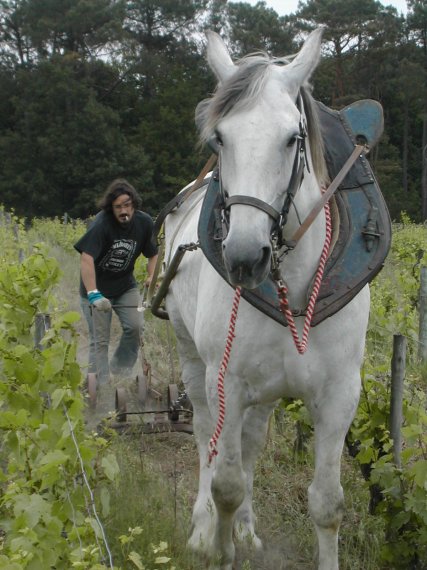
My answer :
10 heads 10 reviews from Jean Lafontaine
Wine is subjective ... But when you're not educated to recognize the chemicals in wine, you can not criticize wine with many chemicals. In the course tasting "sponsored" by the leadership of wine , the difference between the two noses ,and after taste who determine the complexity of the wine and the origin of the yeast are always forgot.
And of course smell the empty glass to recognize the purity of the wine is completely avoided.
So how do you want them to love the natural wine while their memories avoid criticism of chemicals in wines.
Of course there are bad natural wines ... Indeed the winemaker is a tightrope walker, he has no place for error. Then, when I am not able to recognize a wine from the south and the north of France because the Languedoc winemaker used awkwardly carbonic maceration: we go straight to standardization.
A good natural wine is a wine with personality and "beautiful white hair" that does not mask "the whole head". You can have some oxidation but not too much ... That is why I advocate for " a school of natural wines " but encouraged by natural winegrowers and wine experts as Duo-oenology in Alsace.
To say that natural wines are better than others, does not recognize the viticulture "Buccal" are two mistakes that we should not do ... .Step by step, our "very spiritual" style wins the minds of important journalists and wine tasters . The most obvious example is « larousse des vins 2010 « where they talk about organic wines, biodynamic, yeasting and natural wines. Unthinkable there a few years…
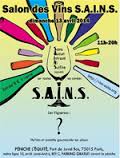
4 associations for natural wine in Europe
• L´Association des Vins Naturels (France)
• Les Vins S.A.I.N.S (France)
• Asociación de Productores de Vinos Naturales de España (Spain)
Natural Wine fare : ( from wiki and Me)
• RAW (London, UK,] Vienna, Austria)
• Les vins du coin Blois and Orléans -
• A la Rencontre des Vins Naturels (Grenoble,)
• Salon de Vinos Naturales (Barcelona, Spain)
• Salon des vins libres en Alsace
with few natural wines
renaissance des appellations Angers
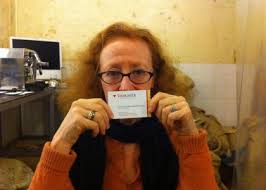
Key individuals for natural wine - from wiki and Me
The following people were or are particularly instrumental in the inspiration, production or communication of contemporary natural wine:
Isabelle Legeron MW, founder of RAW, standard bearer for natural wines and author of "Natural Wine: an introduction to organic and biodynamic wines made naturally"
Jules Chauvet, developer of carbonic maceration fermentation, sulphite free winemaking, and author.
Jacques Néauport Legend and winemaker of natural wine , author of » Les tribulations d'un amateur de vins » and Petit traité de dégustation
Marcel Lapierre, wine producer, mentor, and early adopter of low to no sulphite winemaking.
Alice Feiring, American writer.
Josko Gravner, Italian wine producer and mentor http://www.sedimentarywines.com/italy/producer-gravner.html
Claude Courtois natural winegrower in Soing en Sologne - Loire Valley. He became for many young french winegrower a mentor.
Jean-pierre Frick natural winegrower in Pfaffeneim in Alsace. He does the 2 kind of wine, the same grape, the same vintage. the first with sulfur, the second without sulfur. It is very important to taste.
François Morel french journalist author of « Le vin au Naturel » 2007 édition sang de la terre
Pierre Jancou French wine taster author of « Vivant » 2011 publisher Broché, owner of www.morethanorganic.com
Olivier Cousin wine producer, mentor, and early adopter no added sulfur’s winemaking in Loire valley
Johnatan Nossiter is an American filmmaker. 2 movies : Mondovino and Natural resistance.
Duo oenologie : First oenologist for natural wine
Pierre Paillard : Author of « La Quête du vin » 1996 This book is a reference for unknown to the public. The first to speak about sensitive crystallization. I think Pierre Paillard with Jacques Néoport was the first defender about « authentic wine » in France.
Samuel Cogliati : Journalist Franco-Italian, he wrote vini naturali
And Me : Jean-Charles Botte sommelier in XIch Lô Oslo Norway wine writer www.vinpur.com author of
"le guide du vin vivant" 2007 publisher Anagramme
"le dico du vin naturel "2011 publisher le courrier du livre
"Apprendre à déguster avec un pro" 2011 le courrier du livre. In english Tasting lesson with organic sommelier. In this book, i compare wine with natural yeast / added yeast and wine with sulfur and without sulfur.
About Isabelle Saporta and Vino buisness : She is regular journalist, she did a book Vinobuisness publishor Albin Michel 2014. A true book about wine without artifice. Many wine journalist criticizes her. But she is the first to talk about chemical in vine on tv or on radio. With this book and report, everybody knows problem and buisness in wine.
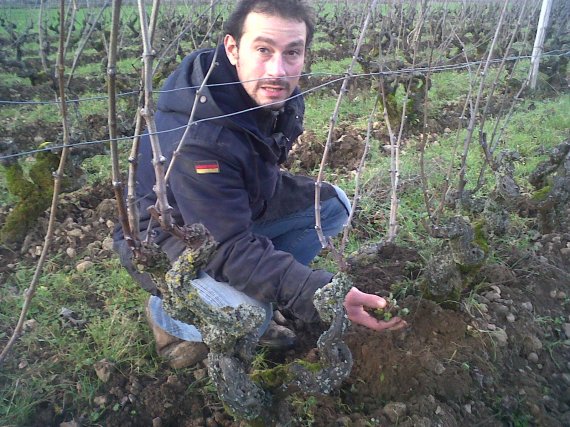
Few winegrowers with no added sulfur….
Loire Valley :
Angers : Patrick Desplat, Les vignes de Babass, Olivier Cousin, Gildas beclair
North of Tours : Domaine de la Grapperie, domaine de l’angevin
Muscadet : La Paonnerie
Middle of Loire Valley Sébastien Riffault, Mathieu Coste
Loir et cher near to Blois : Domaine des maisons brûlées - changement de propriétaire- Pascal potter, Brunon Allion
…….
Alsace : Bruno Schuller, Jean-Pierre Frick, Rietsch, Binner, Laurent Bannwarth
Jura : Emmanuel Houillon et Pierre Overnoy, Jean-François Ganevat
Beaujolais : Marcel Lapierre, Julie Balagny , Christian Ducroux Philippe Jambon, Jean Foillard
Bourgogne : les vignes du Maynes, Catherine et Gilles Vergé, Dominique Derain, Philippe Pacalet, Fred Caussard, Yann Durieux
Bordeaux : Château le Puy, Château Meylet
Sud : Domaine de Rapatel, Domaine Milan, Le raisin et l’ange, Domaine Casot des Mailloles Mylene Bru; Clos fantine, domaine de MATASSA, Jean-Michel Stépahan.
Italie : Camilo Donati, Casa belfi, Carroussin, Stefano Legnani, Denavalo,Franck Cornilsen
Espagne Barranco Oscuro, Ramón Saavedra
Lebanon : Château Musard
But sometimes I forget maby someone : another address

Adress of restaurant (and wine shop) who served natural wine
France :
Marseille : wine shop and restaurant.
Nice : le bistrot du fromager 29 rue Benoît Bunico 06300 Nice 04 93 13 07 83
Bourges : wine shop

Website :
https://www.facebook.com/DeSolari.be
http://www.quedubonheurvinsnaturels.com
My Dream, my utopia :
Someone sees by the oenological wine without defect without personality ... I can’t drink them ... for some wines, i just have to feel their nose to get a headache ... .I’m sorry to be allergic with chemicals in wines. Yes, I know there are bad natural wines ... This is the reason we need a school of natural wines in France not made by conventional winemakers but by natural winemakers.
My second dream is that professional wine as sommeliers, winemakers and journalists learn to recognize the "too much chemicals" in a wine.
My third dream is the recognition of the two major styles of wine in the world, with long after taste (spiritual) and without after taste (buccal).
who will live, will see
JCB October 2014
-
Natural wine

- Organic farming
- Loire: the forgotten of Robert Parker
- The term organic wine in europe
- Buccal wine and spiritual wine
- Different styles of wines in the world
- Travel through the organic vineyards
- the rosé wine
- THE OENOLOGISTS / WINEMAKERS
- My tasting
- Old vintages: how to know if ...?
- Natural wine
- Local Grappe
- Glug Glug wine what is it ?????
- Edition
